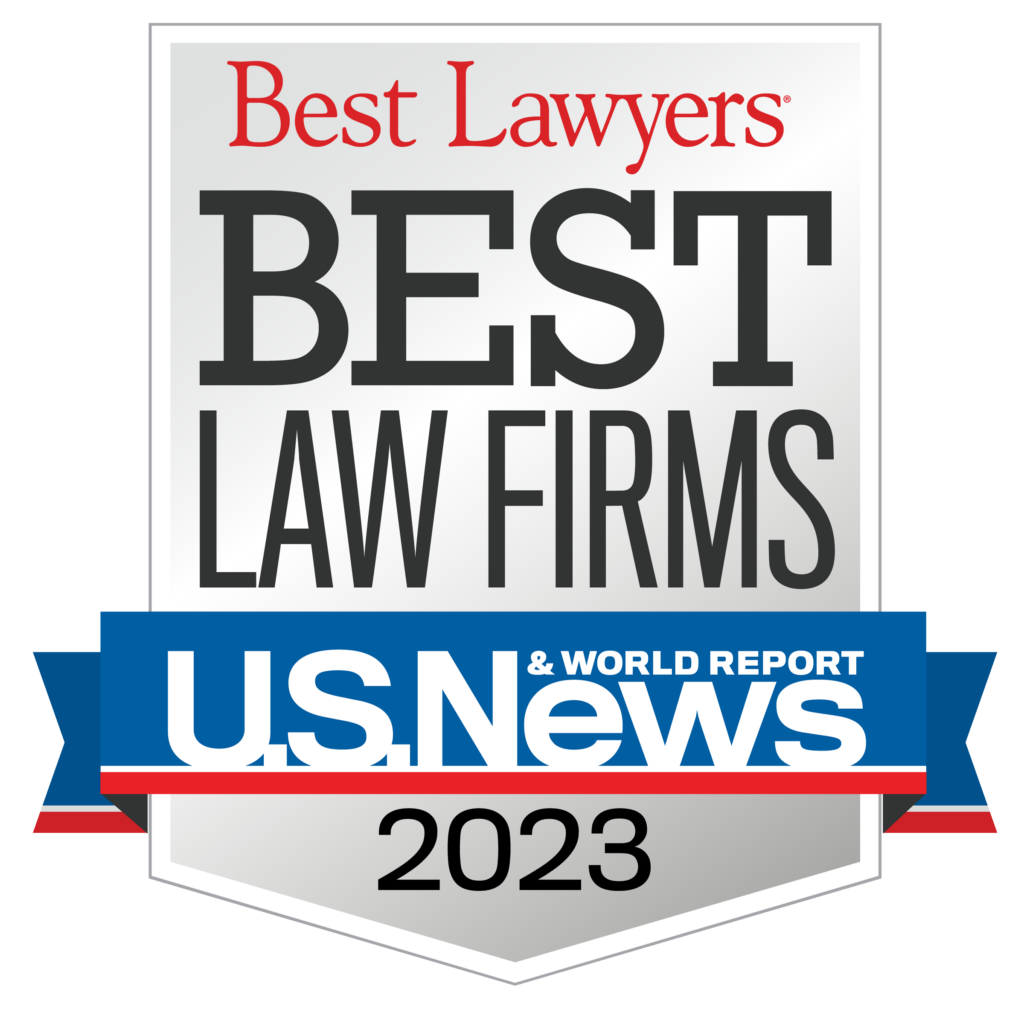More HH Legal Updates
Preparing for Changes to Catch-Up Contributions Beginning in 2026
History and Background:
The SECURE 2.0 Act of 2022 (“SECURE 2.0”) signed by President Biden on December 29, 2022 provided some new changes as well as some revisions to the Setting Every Community Up for Retirement Enhancement (“SECURE”) Act of 2019, and while most of the retirement plan changes required by the two laws have gone into effect, one notable change is set to be implemented for almost all plans beginning on January 1, 2026.
The mandatory Roth catch-up contributions for high earners were initially scheduled to take effect on January 1, 2024. However, realizing the administrative burden for plan sponsors related to this requirement, the Internal Revenue Service (“IRS”) granted an administrative delay that postponed compliance until January 1, 2026. Prior to the issuance of the final regulations related to the new requirements in September of 2025, many thought that an additional delay would be issued extending implementation of the requirements until January 1, 2027, when the final regulations become effective.
The IRS did not issue another delay which means that almost all plans (all plans other than multiemployer plans) must comply with the statute operationally beginning on January 1, 2026 (regardless of the beginning of the plan year). Because the final regulations are not effective until 2027, however, plans are permitted to apply a reasonable, good-faith interpretation of the statute until January 1, 2027, at which point plans will be required to comply with the statute based on the interpretations set forth in the final regulations.
Applicability of the Statute:
The mandatory Roth catch-up rules apply to participants in 401(k), 403(b) and governmental 457(b) plans who are age 50 or older and whose FICA wages from the employer sponsoring the plan exceeded $145,000 in the preceding calendar year. If these “high earners,” who are different that those who qualify as Highly Compensated Employees, elect to make catch-up contributions to the plan, those contributions must be made as after-tax Roth contributions rather than traditional pre-tax deferrals. (The $145,000 threshold is indexed for inflation, and in fact is increased to $150,000 for 2025 wages used to determine high earner status for 2026.)
For purposes of identifying high earners who are subject to these rules, it is important to note that the rules apply to those employees with FICA (social security) wages in excess of $145,000 (already adjusted to $150,000). This means that a self-employed individual, or a partner in an entity taxed as a partnership who is compensated in the form of guaranteed payments rather than traditional employee compensation reported on Form W-2, will not be subject to the mandatory Roth catch-up regardless of the level of compensation.
Effect on Participants:
While the new rules will have significant effects on the ability of high earners to contribute to the plan on a pre-tax basis, for plans that do not allow Roth contributions, the ability of high earners to make catch-up contributions will be eliminated beginning on January 1, 2026, unless the plan is amended to allow Roth contributions. The mandatory Roth catch-up rules do not require plans that do not currently permit Roth contributions to be amended to add that feature, and therefore participants who are now considered high earners and who have been making catch-up contributions on a pre-tax will no longer be able to make any catch-up contributions if the plan is not amended. Because adding the Roth contributions is considered to be a discretionary amendment, under IRS rules the amendment must be adopted by the last day of the plan year in which the change is effective, which means that plan sponsors who implement the Roth feature in operation have until December 31, 2026 (for calendar-year plans) to add the Roth contribution feature to the plan document.
The final regulations allow plans to adopt a “deemed Roth catch-up election” which will allow the payroll system to automatically treat excess deferrals as Roth catch-up once the regular 401(k) contribution limit ($24,500 for 2026) is reached by the participant. In order to use the deemed Roth catch-up election, the plan must have the election written into the plan document, and it must give participants an opportunity to opt out of the deemed election. If the participant is determined not to have been subject to the mandatory Roth catch-up, the amounts treated as Roth contributions are not required to be recharacterized, but the election must be stopped within a reasonable amount of time.
Correction Methods:
In the event that a high earner makes pre-tax catch-up contributions, the employer may use one of two methods to make a correction. First, if the employer has not yet filed and distributed Form W-2 to the employee, the employer may transfer the contributions, plus earnings, into the employee’s Roth 401(k) account within the plan and report the same as income on the Form W-2 for the employee. Second, if the Form W-2 has already been filed and distributed to the employee, the pre-tax catch-up contributions can be treated as in-plan Roth rollovers and the rolled contributions (plus any earning thereon) can be reported on Form 1099-R.
If you have any questions about the mandatory Roth catch-up contributions, please contact the author, Chuck Scholz, at 412-288-5016 or scholzcd@hh-law.com.
About Us
Trusted and Cost-Effective Business Law, Business Litigation and Estate Planning Attorneys and Counselors; Building Client Confidence™ with Businesses and Individuals Since 1975
Our firm offers individualized solutions and the highest quality, client-driven and cost effective legal services. Houston Harbaugh, P.C., is a well-known law firm in Pittsburgh, serving Pennsylvania, West Virginia and Ohio. Our diverse practice areas include Business Law, Business Litigation, Estate and Succession Planning, Intellectual Property Litigation and Prosecution, Employment and Labor, Employee Benefits, Oil and Gas, Landowner and Property Dispute Counseling and Litigation, Health Care, Environmental, Real Estate, Construction, Complex Tort and Catastrophic Injury Litigation, Insurance coverage and Bad Faith Law, Mediation, Arbitration and Special Master appointment work. As one of the 20 largest law firms in Pittsburgh, our lawyers serve clients on a regional and national basis.
We regularly represent regional, national and international insurance carriers in defense, insurance coverage, unfair trade practices and bad faith matters, and we issue opinions letters and coverage analyses for insurers. We defend designers, manufacturers and sellers in pharmaceutical, products and medical products liability matters and we litigate and try cases involving catastrophic injuries, industrial accidents, toxic torts, professional, engineering and architectural negligence, and agent and broker claims and lawsuits.

Why Houston Harbaugh, P.C.? The Answer Is Clear.
We are accomplished litigators with a strong track record of success in the courtroom and in jury trials. We design and manage business transactions, succession planning, banking and regulatory issues. Our firm has regularly been featured in the U.S. News “Best Lawyers”® rankings of Pittsburgh’s “Best Law Firms.” Our attorneys are also regularly nominated as “Best Lawyers” in this publication. In addition, many of our attorneys are consistently recognized in the annual national Super Lawyers peer review rankings, and our corporate practice has been selected as the winner of The Legal Intelligencer’s Best Law Firm Corporate Practices contest for the Midsize Firm category. Our property and landowner counseling and litigation practice in Oil and Gas and Real Estate is ranked at the top on a regional basis. We help clients to apply for, prosecute, audit, manage and protect intellectual property rights in patent, trademark, copyright and trade secrets. We are admitted to the USPTO and have experience in the TTAB. Some of our firm’s shareholders are Adjunct Professors of Law at the Duquesne University School of Law in litigation and intellectual property courses.
Helping You Achieve Your Goals For Over 40 Years
Since our inception as a health care practice in 1975, our attorneys have represented clients in state and federal courts in Pennsylvania, West Virginia, Ohio and throughout the nation. We have grown into a multi-disciplinary practice with the ability to handle complex business transactional and litigation matters. We counsel on estate and succession planning and on trust and guardianship matters. We have a strong employment and labor practice. We represent clients in trade secret counseling and federal Defend Trade Secret Act (DTSA) counseling and litigation. Our DTSALaw® practice group is well versed in this federal body of trade secret law. We counsel, draft, litigate and defend claims involving employment non-compete, restrictive covenants, non-disclosure agreements and breach of contract matters. We service clients in the collection of debts and in bankruptcy creditor matters. Houston Harbaugh litigates in Orphans and Probate courts for matters involving estates and trusts. We also provide mediation and arbitration services to parties involved in litigation and our lawyers are currently serving as court appointed special masters in the Federal Courts.
Contact us and Learn How We Can Help You and Your Business
For more information on how we can help you, call our Pittsburgh office at 412-281-5060. You can also reach us online.
DTSALaw®; Business Litigation; PSMN®; and PSMNLaw® are federally registered trademarks of Houston Harbaugh, P.C. and this website is copyright protected. All rights Reserved to Houston Harbaugh, P.C.. Building Client Confidence™. www.dtsalaw.com www.psmnlaw.com www.psmn.com

